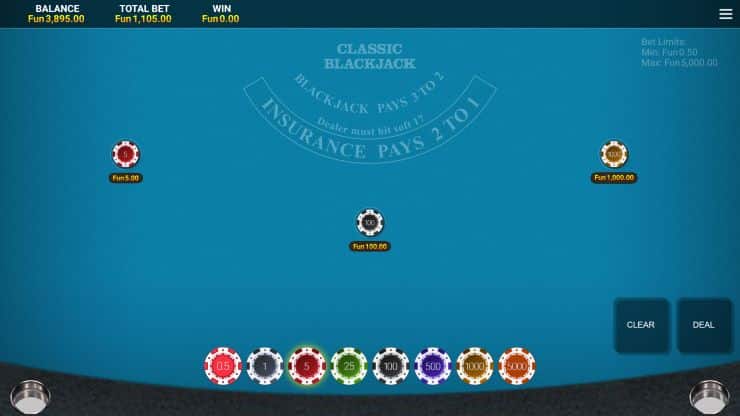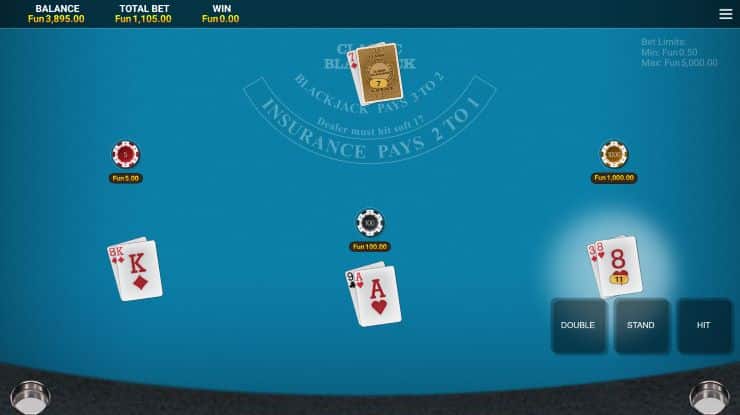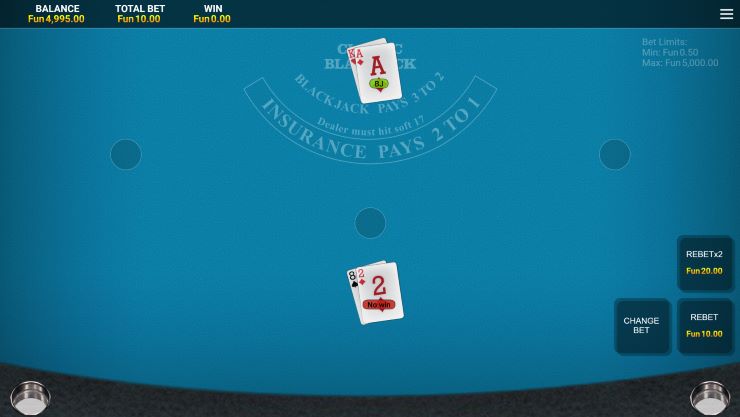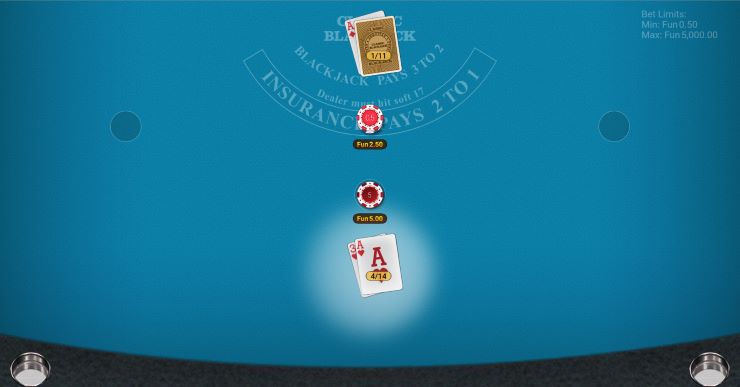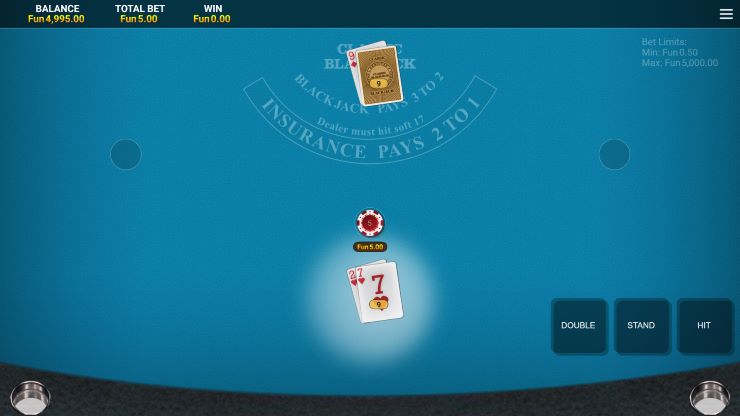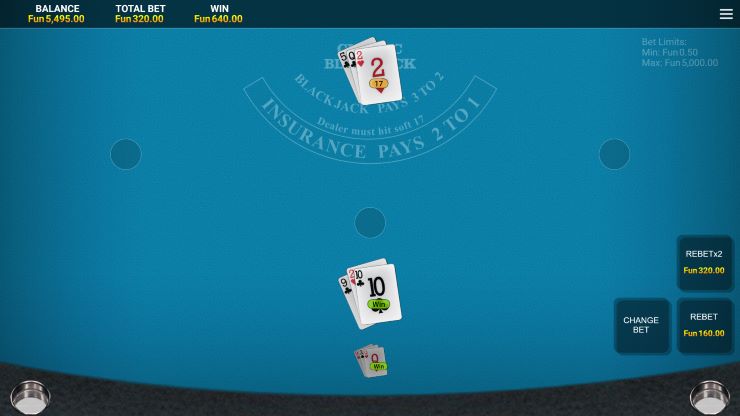David spent 25 years as both a writer and editor within the betting/casino industries - including at The Guardian, Racing Post, 888Casino and Sky Sports Racing - prior to joining BBI. He has a diploma in sub-editing and law, is the author of four books, and remains a successful sports tipster.
All posts by David MyersWriter and editor with over 15 years of experience in the iGaming industry, having worked for TeamTalk, ClubCall, Planet Sport and several Tier 1 and Tier 2 sportsbooks. Passionate Middlesbrough FC supporter.
All posts by Andrew MorganKnowing how to deal blackjack is a lot trickier to master than simply playing the game. But, since blackjack is one of the most popular table games offered by land-based and online casinos in the US and offers one of the highest RTPs, it is worth knowing how to deal blackjack cards.
We take you through the ins and outs of dealing blackjack and show you the ropes. You can learn the processes, how the dealer affects the game, and what the most common player actions are during the dealing process.
- Show full guideShow less
How To Deal in Blackjack
The first step to learning how to deal blackjack for beginners is to understand the process and how it works. We guide you through dealing blackjack below, using detailed steps.
Shuffle the deck
To ensure fairplay, all card decks are shuffled well before they are disseminated among the players. You may opt to shuffle the deck in sections, particularly if there is more than one deck involved in the game. Once you have shuffled the cards sufficiently, you can pass the deck to a player and have them cut the deck, where they insert a small plastic card that eliminated the bottom 65-70 cards from the deck to prevent card counters from effectively counting the cards.
If you’re going to play regularly or if you intend on playing with multiple decks, a card-shuffling machine is always a great investment as it shuffles in half the time.
When playing at top online blackjack casinos, the cards are shuffled by Random Number Generating software.
Once you have shuffled the cards sufficiently, you can place them face-down in the shoe or on the table.
Call players to place bets
Before you deal out the cards, you must call for the players to wager their first bets. Each player gets to place their bet in their respective bet boxes. After you have awarded sufficient time for everyone to place their bets, you’ll need to announce that no more bets may be placed.
Players who have not placed their bets within this period are excluded from the round and must wait until the round to end before they can place their next wagers.
Start dealing
Now it is time to deal out the cards. Starting from left to right, you must give each player one card, placed face up and place it directly infront of them. You can add a little flare to your dealing technique here – some dealers like to slide the card face-down across the table and flip it over one it is in front of the player.
Deal to yourself and complete dealing to other players
Once each player has a card, you must deal your own card but leave it face down and place it in the dealer’s box. Once you have dealt your own card, you can begin to deal a second card to each player. Again, each player’s card must be placed face up, directly infront of them. When all the players have their second card, you can deal your second card. Unlike your first card, this one must be turned face up and is considered your up card.
It is at this point in learning how to deal for blackjack that we consider Naturals. This occurs if the first two cards you deal a player happen to be an Ace and a ten, leaving the player with a hand with a value of 21 – a natural or “blackjack.”
In this case, if you, as the dealer, don’t have a natural and only the player has a card value of 21, you must pay the player one and a half times the value of their original stake.
If you, as the dealer, have a natural, you must immediately collect all the bets of players who don’t have “blackjack.”
However, in a situation where you, the dealer, and a player end up with a natural, the player’s bet is a stand-off, and the player recoups their chips in what is called a “push.”
If the dealer’s upcard is an Ace or a ten, you may check your hole card to see if you have a natural. In any other instance, you must wait until it is the dealer’s turn to reveal your hold card.
Call for insurance and bet collection
If, as the dealer, your upcard is an Ace, you must ask the participating players whether they would like to take blackjack insurance. This insurance wager allows players to place another bet of half their original stake, allowing them to break even if your hole card is a ten.
Once all players have made their insurance bets (if they choose to do so), you can reveal your face-down card (hole card) to see whether you have blackjack.
If you have a natural, all insurance bets are paid out at 2:1. However if you don’t have blackjack, you must collect all insurance bets and continue with the round.
Give players the choice to split, double down, hit, or stand
The next step in learning how to deal in blackjack is allowing the players to make their next move. Each player’s hand is now on the table and they can choose to take action. A player has several ways in which they can advance depending on the blackjack strategy they’re using.
Finish round
Once all players have had a chance to make a move, it becomes your turn, as the dealer. You must now reveal your face-down card and push your hand to the right. You must then continue to hit, placing these cards to the left, until your hand reaches a value of 17 or higher. Once your hand reaches 17 or more, you stand. However, if you, as the dealer, bust (go over 21), all players that still have bets on the table win their bets.
If you don’t bust, all players still in the game must compare their cards with yours. Those, whose hands are lower than yours lose the round, but those whose hands have a higher value than yours win the round. If a player has a hand that is a tie with yours in value, it is a push and they receive their original stake back.
You can now clear the table and start again.
Note that when playing certain variations of the game like no bust blackjack, some of the rules may differ slightly, so as the dealer it is essential to always fully know and understand the rules of the variation you’re playing.
Ways Dealers Can Affect Blackjack
Now that you know how to deal cards in blackjack, it is worth considering how a dealer can affect a game of blackjack. Dealers can affect the game outcome based on how they choose to deal and how they implement some of the more obscure rules of the game. Below, we consider some ways a dealer may have a bearing on a blackjack game.
Following the Rules of Blackjack
As the dealer, you must follow specific blackjack dealing rules when playing your hand, for instance, standing once your hand reaches or exceeds a value of 17. While these rules vary according to the casino and the game variation, they are often much along the same lines. How you opt to follow these rules will affect the overall game outcome.
Decisions on Soft 17
Another thing you’ll come to know when learning how to deal blackjack 21, is that different variations of the game often come with unique rules. For instance, some versions require dealers to hit on a soft 17 (where the hand has an Ace valued as an 11). However, other variations require you to stand on 17. Since this rule variation affects your potential hand value as the dealer, it will also influence how players play their hand.
Speed of Dealing
The speed at which you deal blckjack will also have a bearing on the game’s outcome. The faster you deal, the quicker you can get through more hands, which allows for more wins or losses for players, depending on their level of expertise.
Interacting with Players
Since you, as the dealer, run the game, your attitude, demeanor, and ability to maintain the game’s rhythm will affect how it progresses. Creating a professional attitude helps players enjoy their experience and also serves to distract card counters.
Common Player Actions During Blackjack Dealing
When it comes time for players to take action on their hand, there are several choices they can make. When learning how to set up blackjack, it is important to know what these are. These include:
- Surrender: In a case where a player’s cards have a value between 15 and 17 and their odds of winning are poor, they can opt to surrender blackjack and fold their hand. In turn, they receive back 50% of their original stake and forfeit the round.
- Double Down: The player opts to receive one additional card but they must double their original bet. You must place this card sideways infront of the player.
- Stand: If the player opts to stand they choose to not take action of any kind and you must skip them and move onto the next player.
- Hit: Here, the player opts for another card. You must deal them an additional card. If this causes their hand value to exceed 21, they go bust and you must collect their bet and move onto the next player. However, if their hand value remains within bounds the player may opt to hit again until they bust or stand.
- Split: If the player’s initial hand results in a pair, they may choose to split. They must then place a second bet for this new additional hand. You, as the dealer, must then deal another card to the player’s hand on their left. Once you have dealt this hand, you can move onto dealing the hand on the player’s right.
Conclusion
We hope we have answered your burning questions like how do you deal blackjack, and what bearing does a dealer have on the blackjack game. Understanding blackjack and how to deal is relatively straightforward and comes down to knowing how the game works, and what the rules are, not just for the players, but for you as the dealer as well. Practicing good tableside etiquette will also ensure that the game runs smoothly, leaving you and the players to enjoy each round.
How To Deal Blackjack FAQs
How much influence does a blackjack dealer have?
When learning how to deal blackjack, you’ll find that in terms of the rules, you don’t have much wiggle room. However, when it comes to how you interpret and implement more ambiguous rules you have more influence.
How important is a decision on Soft 17?
This is very important. While most online casinos play it such that the dealer can hit on soft 17, it is always best to find a game where the dealer stands on 17. This is because hitting on soft 17 raises the house edge by 0.22%, which does not work in favor of the players.
Does the dealer have an advantage in blackjack?
Yes. Since all online and land-based casinos implement a house edge, the dealer will always have an advantage in blackjack and have greater odds of winning the game than a player.
David spent 25 years as both a writer and editor within the betting/casino industries - including at The Guardian, Racing Post, 888Casino and Sky Sports Racing - prior to joining BBI. He has a diploma in sub-editing and law, is the author of four books, and remains a successful sports tipster.
All posts by David MyersDavid spent 25 years as both a writer and editor within the betting/casino industries - including at The Guardian, Racing Post, 888Casino and Sky Sports Racing - prior to joining BBI. He has a diploma in sub-editing and law, is the author of four books, and remains a successful sports tipster.
All posts by David Myers
